- Clone
- K097F7 (See other available formats)
- Regulatory Status
- RUO
- Other Names
- CCR11, CKRX, CRAM, HCR
- Isotype
- Mouse IgG2a, κ
- Ave. Rating
- Submit a Review
- Product Citations
- publications
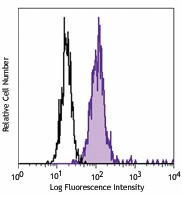
-

Human peripheral blood monocytes were stained with CCRL2 (clone K097F7) PE (filled histogram) or mouse IgG2a, κ PE isotype control (open histogram).
| Cat # | Size | Price | Quantity Check Availability | Save | ||
|---|---|---|---|---|---|---|
| 358303 | 25 tests | 123€ | ||||
| 358304 | 100 tests | 268€ | ||||
CCRL2 (C-C chemokine receptor-like 2) is a seven transmembrane, G-protein coupled receptor with two isoforms generated from alternative splicing. CCRL2 is expressed by the majority of cell types of hematopoietic origin, including monocytes, macrophages, neutrophils, lymphocytes, and NK cells. In some cell types, its expression is upregulated by inflammatory stimuli. CCRL2 is important for the development of Th2 responses and may act as a decoy receptor capturing and endocyting its ligands CCL5 and CCL19; however, it has been found that CCRL2 captures and retains chemerin/RARRES2 on its cell surface, presenting it to neighboring cells.
Product DetailsProduct Details
- Verified Reactivity
- Human
- Antibody Type
- Monoclonal
- Host Species
- Mouse
- Immunogen
- Expression vector containing the full sequence of CCRL2
- Formulation
- Phosphate-buffered solution, pH 7.2, containing 0.09% sodium azide and BSA (origin USA)
- Preparation
- The antibody was purified by affinity chromatography and conjugated with PE under optimal conditions.
- Concentration
- Lot-specific (to obtain lot-specific concentration and expiration, please enter the lot number in our Certificate of Analysis online tool.)
- Storage & Handling
- The antibody solution should be stored undiluted between 2°C and 8°C, and protected from prolonged exposure to light. Do not freeze.
- Application
-
FC - Quality tested
- Recommended Usage
-
Each lot of this antibody is quality control tested by immunofluorescent staining with flow cytometric analysis. For flow cytometric staining, the suggested use of this reagent is 5 µl per million cells in 100 µl staining volume or 5 µl per 100 µl of whole blood.
- Excitation Laser
-
Blue Laser (488 nm)
Green Laser (532 nm)/Yellow-Green Laser (561 nm)
-
Application References
(PubMed link indicates BioLegend citation) -
- Migeotte I, et al. 2002. Eur. J. Immunol. 32:494. (FC)
- Product Citations
-
- RRID
-
AB_2562117 (BioLegend Cat. No. 358303)
AB_2562117 (BioLegend Cat. No. 358304)
Antigen Details
- Structure
- Seven transmembrane, G-protein coupled receptor, 2 isoforms
- Distribution
- Majority of cell types of hematopoietic origin, including monocytes, macrophages, neutrophils, lymphocytes, and NK cells; upregulated after inflammatory stimuli
- Function
- May act as a decoy receptor capturing and endocyting its ligands; captures chemerin/RARRES2 on the cell surface to present it to neighboring cells
- Ligand/Receptor
- CCL5, CCL19, chemerin/RARRES2
- Cell Type
- B cells, Dendritic cells, Neutrophils
- Biology Area
- Cell Biology, Immunology
- Molecular Family
- Cytokine/Chemokine Receptors, GPCR
- Antigen References
-
1. Yin F, et al. 2012. Biochem. Biophys. Res. Commun. 429:168.
2. An P, et al. 2011. PLoS Genet. 10:e1002328.
3. Yoshimura T and Oppenheim JJ. 2011. Exp. Cell. Res. 317:674. - Gene ID
- 9034 View all products for this Gene ID
- UniProt
- View information about CCRL2 on UniProt.org
Related Pages & Pathways
Pages
Related FAQs
- What type of PE do you use in your conjugates?
- We use R-PE in our conjugates.
- Does staining at room temperature or even at 37°C help for checking chemokine receptors expression?
-
Due to continuous recycling of many chemokine receptors, it may be worthwhile to consider staining at room temperature or at 37°C if the staining at lower temperature (which can potentially reduce receptor turnover) is not optimal.
Other Formats
View All CCRL2 Reagents Request Custom Conjugation| Description | Clone | Applications |
|---|---|---|
| Purified anti-human CCRL2 | K097F7 | FC |
| PE anti-human CCRL2 | K097F7 | FC |
| TotalSeq™-C1176 anti-human CCRL2 Antibody | K097F7 | PG |
Customers Also Purchased
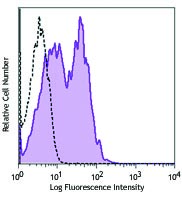
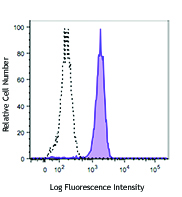
Compare Data Across All Formats
This data display is provided for general comparisons between formats.
Your actual data may vary due to variations in samples, target cells, instruments and their settings, staining conditions, and other factors.
If you need assistance with selecting the best format contact our expert technical support team.
-
Purified anti-human CCRL2
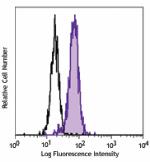
Human peripheral blood monocytes were stained with purified ... -
PE anti-human CCRL2
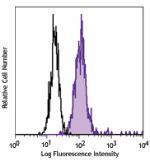
Human peripheral blood monocytes were stained with CCRL2 (cl... -
TotalSeq™-C1176 anti-human CCRL2 Antibody
 Login / Register
Login / Register 









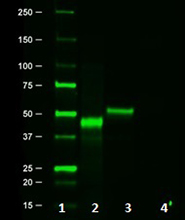
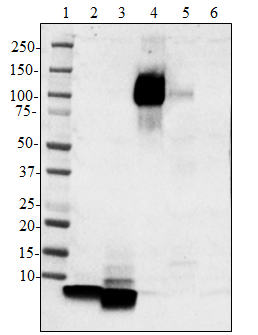



Follow Us